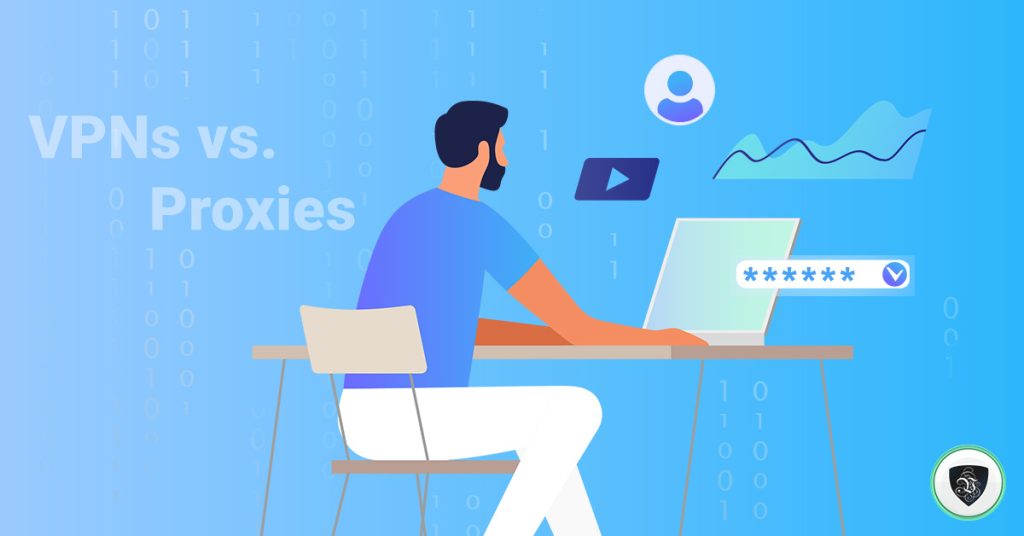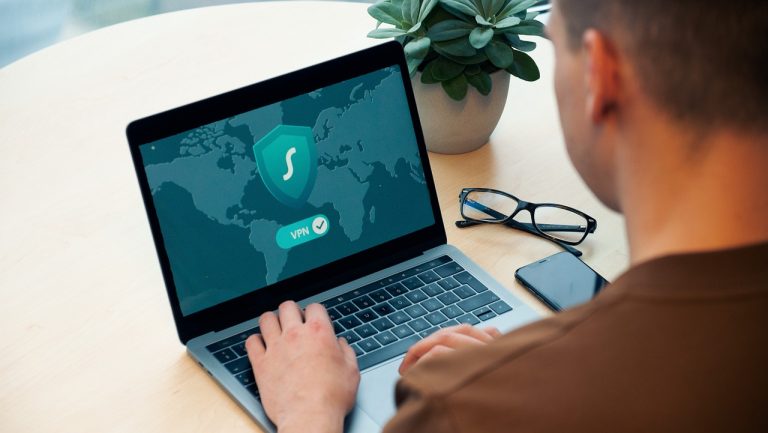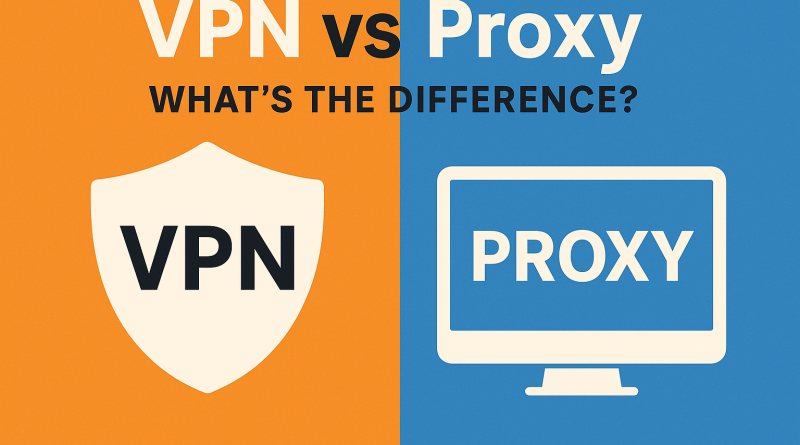VPN vs Proxy: Which is Better for Online Security in 2025
As the digital world expands, so do the risks of cyberattacks, data theft, and online surveillance. Whether you are browsing, streaming, gaming, or working remotely, protecting your online presence has become a necessity in 2025. Two popular tools often come into the conversation are VPNs (Virtual Private Networks) and Proxies.While both help mask your IP address and provide a layer of privacy, they work differently and offer distinct advantages. The big question is: which is better for online security in 2025 VPN or Proxy? This article dives deep into how VPNs and proxies work, their pros and cons, use cases, performance in 2025, and which option you should choose for ultimate online protection.
1: Understanding the Basics
What is a Proxy?
A proxy server acts as a middleman between your device and the internet. When you send a request (like visiting a website), it routes your traffic through the proxy, masking your real IP address.
Types of Proxies:
-
HTTP Proxy – Handles only web traffic.
-
SOCKS Proxy – Works with all traffic types, including torrents.
-
Transparent Proxy – Doesn’t hide your IP but is used for filtering or monitoring.
Key Feature: Proxies focus on anonymity rather than encryption.
Chapter 2: VPN vs Proxy – How They Work Differently
| Feature | Proxy | VPN |
|---|---|---|
| IP Masking | Yes | Yes |
| Encryption | No | Yes |
| Speed | Usually faster but less secure | Slightly slower but highly secure |
| Cost | Often free or cheap | Typically subscription-based |
| Bypass Geo-blocks | Limited | Very effective |
| Security Level | Basic | High |
What is a VPN?
A VPN (Virtual Private Network) encrypts your internet traffic and routes it through a secure server, hiding your IP address and protecting your data from hackers, ISPs, and surveillance agencies.
Types of VPNs:
-
Remote Access VPN – For individual users connecting securely to the internet or company networks.
-
Site-to-Site VPN – Connects entire networks securely.
-
Mobile VPNs – Optimized for smartphones and tablets.
Key Feature: VPNs provide encryption + anonymity, making them more security-focused.
3: Benefits of Using a Proxy
-
Quick Anonymity – Hides your IP easily.
-
Good for Low-Security Tasks – Like accessing geo-restricted websites or bypassing firewalls at school/work.
-
Lightweight – Doesn’t require heavy resources.
-
Cheap or Free – Many proxies are available at no cost.
Best Use Cases in 2025:
-
Streaming region-locked content.
-
Casual browsing where encryption isn’t critical.
-
Managing multiple accounts online.
4: Benefits of Using a VPN
-
Strong Encryption – Protects data from hackers and cybercriminals.
-
Safe Public Wi-Fi Usage – Shields sensitive information when connected to public hotspots.
-
Bypass Censorship – Access websites blocked in certain regions.
-
All-Traffic Protection – Unlike proxies, VPNs encrypt everything (apps, browsers, downloads).
-
Remote Work Security – Essential for businesses in 2025 where hybrid work is the norm.
Best Use Cases in 2025:
-
Online banking and payments.
-
Remote work and business communications.
-
Streaming and torrenting securely.
-
Avoiding government surveillance.
5: VPN vs Proxy in 2025 – Performance and Relevance
Proxies in 2025
Proxies remain popular for simple tasks and budget-friendly anonymity. However, free proxies often come with risks such as data logging, malware injections, or slow speeds.
VPNs in 2025
VPNs have evolved significantly with faster protocols like WireGuard and Quantum-resistant encryption. Many providers now include split tunneling, kill switches, multi-hop VPNs, and built-in ad blockers, making them more reliable for both individuals and businesses.
6: Security Comparison
-
Encryption: VPN wins (AES-256 or stronger).
-
Data Protection: VPN prevents ISPs, hackers, and governments from spying on your traffic.
-
Privacy: Both hide your IP, but VPN ensures complete anonymity.
-
Reliability: VPN connections are more stable compared to free proxies.
Verdict: For true security, VPN is the winner.
7: Speed & Performance in 2025
-
Proxies are faster in theory since they don’t encrypt data.
-
VPNs may add slight latency, but with modern protocols like WireGuard, they’re nearly as fast as proxies.
-
Premium VPNs in 2025 now offer 10 Gbps servers, making speed differences negligible.

8: Cost Factor
-
Proxies: Often free or available at very low costs.
-
VPNs: Require a subscription ($5–$12/month for premium services).
While proxies are cheaper, VPNs provide better value for money when you factor in encryption, privacy, and extra features.
9: Risks of Using Free Proxies & VPNs
-
Free proxies may log your data and sell it to advertisers.
-
Some inject malicious ads or malware.
-
Free VPNs often have limited bandwidth, poor security, and questionable privacy policies.
Tip: Always choose a trusted premium VPN for security in 2025.
10: Which Should You Choose in 2025?
-
Choose a Proxy if:
-
You just need to access geo-blocked websites.
-
You want a free/quick solution.
-
Security isn’t your top priority.
-
-
Choose a VPN if:
-
You care about online security and encryption.
-
You use public Wi-Fi, banking, or sensitive communications.
-
You want to bypass censorship and surveillance safely.
-
You need all-around protection across apps and devices.
-
Final Verdict: In 2025, while proxies still have limited uses, VPNs are the clear winner for online security.’

Conclusion
The VPN vs Proxy debate has been ongoing for years, but in 2025, the answer is clearer than ever. VPNs offer stronger security, better privacy, and more reliable performance than proxies, making them the preferred choice for both individuals and businesses.Proxies are still useful for lightweight tasks like unblocking content, but when it comes to protecting sensitive data, avoiding cyber threats, and ensuring complete anonymity, VPNs stand as the superior solution.In a world where cybercrime is at an all-time high, choosing a VPN over a proxy is not just smart it’s essential.
FAQ: VPN vs Proxy in 2025
Q1. What is the main difference between a VPN and a proxy?
A VPN encrypts your entire internet traffic and hides your IP address, ensuring privacy and security across all applications. A proxy only masks your IP address for specific connections, such as a browser or app, without encryption.
Q2. Is a proxy safe to use for online security in 2025?
A proxy provides limited protection. It hides your IP address but does not encrypt your data, leaving you vulnerable to hackers, ISPs, or government surveillance. For true security, a VPN is better.
Q3. Which is faster: VPN or proxy?
Proxies are usually faster since they don’t use encryption, but VPNs have become much faster in 2025 thanks to modern protocols like WireGuard and improved server technology.
Q4. Can I use both VPN and proxy together?
Yes, but it’s often unnecessary. A VPN already hides your IP and encrypts your data. Using a proxy with it may slow down performance without adding much security benefit.
Q5. Do VPNs and proxies work on all devices?
VPNs support all major devices (PC, Mac, iOS, Android, routers, even smart TVs). Proxies usually work only on browsers or specific applications.
Q6. Which is better for streaming in 2025, VPN or proxy?
A VPN is better because it can bypass geo-restrictions and encrypt traffic, ensuring stable access to streaming platforms. Some proxies may still work but are often detected and blocked.
Q7. Is a free VPN or proxy safe?
Most free VPNs and proxies are risky. They may log your activity, sell your data, or inject ads. For reliable online security, a paid and reputable VPN is recommended.
Q8. Which option should I choose in 2025 for maximum security?
For maximum online privacy, protection from hackers, and safe browsing, a VPN is the clear winner over a proxy.




